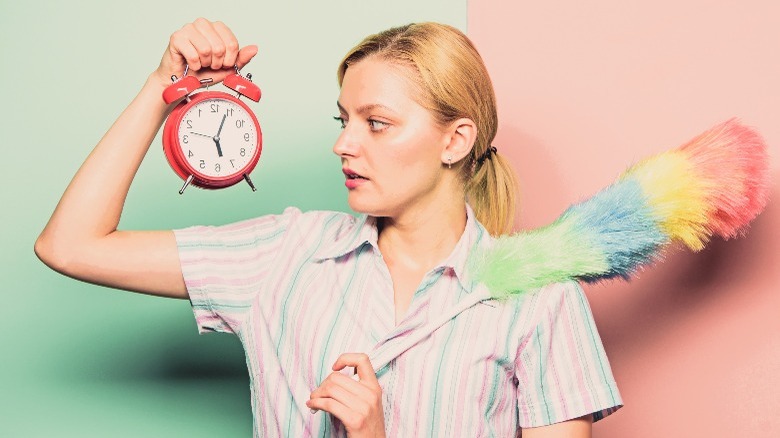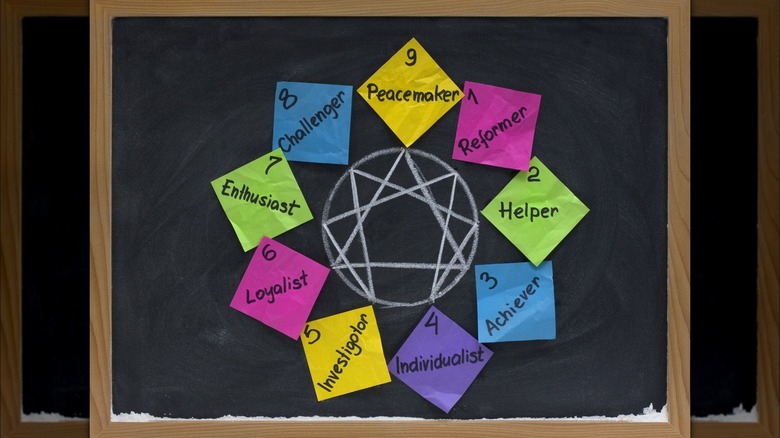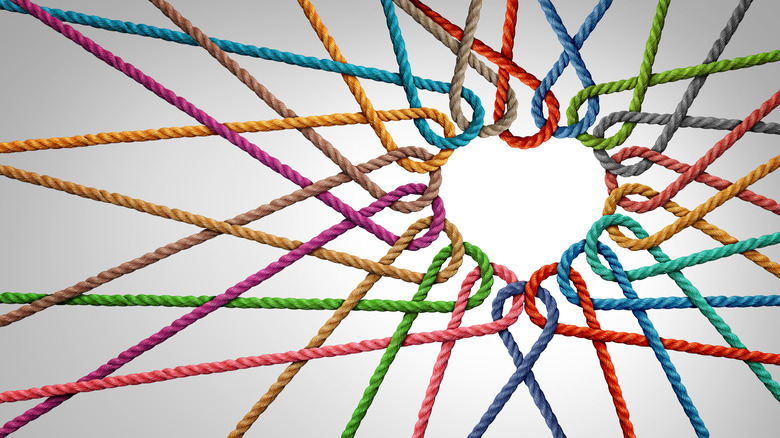If You're An Enneagram One, This Is The Number You're Most Compatible With
The Enneagram is a personality typing system that draws from ancient beliefs about the soul, human qualities, and our collective journey of inner work. Per The Enneagram Institute, the tradition first emerged from Oscar Ichazo's work in Argentina in the 20th century and ultimately came into its lasting form in the 1960s, though the ideals behind it stem from a broad range of mystic and religious traditions. Though a person can exemplify plenty of traits across the nine Enneagram types, they likely have a dominant type, which can be discovered through reading and self-reflection (or quizzes like the Enneagram Institute's, or free versions via The Personality Lab or Truity's website).
Type One, known as "The Reformer" is often synonymous with the perfectionist or the moralist in most situations. This can also make them seem a bit uptight, so they are best complemented by signs who see their positive qualities and appreciate their less-than-perfect humanity. The Enneagram Institute offers a helpful guide for each type to explore potential compatibilities and differences they may share with each other type. Truity also has an Enneagram love compatibility test, though it may work better to analyze your own romantic needs and preferences using a combination of these resources.
Other Enneagram types can help Type Ones loosen up
While every relationship is different, mindbodygreen states that Type Ones have the best chance at a successful relationship with Type Twos and Sevens. Their reasoning? Twos help Ones love the imperfect parts of themselves, and the side-by-side types have overlapping qualities that help them understand each other on an intuitive level.
Their next pick for Ones, the Seven, makes sense because they are connected on the Enneagram chart; Type One integrates into — or exhibits growth in — a One placement, while Type Seven disintegrates into — or has a stress reaction in — Type One, per the Enneagram Institute. Seven can bring the fun and adventure to One's doorstep, while One can ground the overwhelmed Seven in their integrity and core values. The nonjudgmental Seven can remind Ones that they are more than what their inner critic tells them they are, and that letting loose on occasion is a vital part of success.
Truity boasts data collected by 88,000 participants and makes the claim that Type Ones are the most likely to stay in long-term relationships of the Enneagram types, with 38% of Ones surveyed reporting were single and 62% were paired up. Their ability to commit to and work on their relationships seems to stem from their desire for stability and predictability.
Experts found that most people are in a relationship with these three Types
Truity founder Molly Owens weighed in on the Enneagram compatibility data they collected, which found that all types are most likely to be in relationships with Type Nines, Twos, and Ones. She explained, "Nines and Twos are more common in the population when compared to other types, while Ones report that they are more likely to be in a relationship instead of single, which may account for this statistic."
Mindbodygreen also consulted with Enneagram coach and author Stephanie Barron Hall, who wrote "The Enneagram in Love: A Roadmap for Building and Strengthening Romantic Relationships" based on her research. She dove into the topic of same-type pairings, explaining that their success depends on a variety of factors. "Sometimes deep similarity can be comforting or validating, and when couples find that in each other, it can work really well." However, sometimes too many similarities can lead to irritability and plenty of conflict.
Ultimately, compatible couplings depend on emotional maturity and can be negatively affected by societal influences such as gender roles and personality stereotyping, per mindbodygreen. This is one of the reasons that gendered analyses of the types' compatibility have become less useful, since they rely heavily on gendered assumptions that may be too old school to apply.


